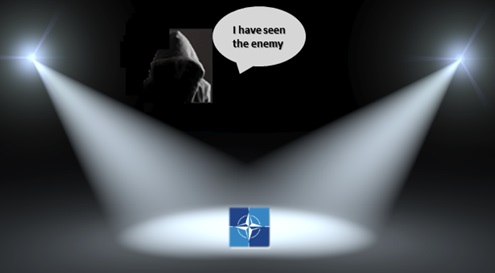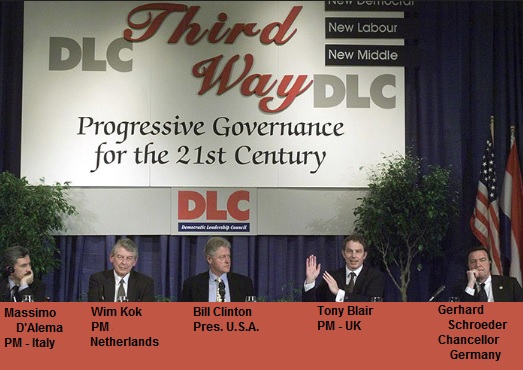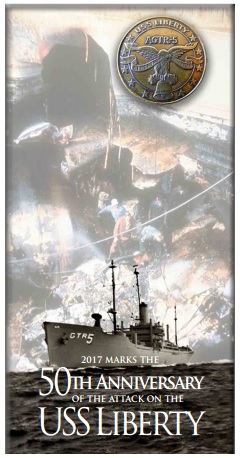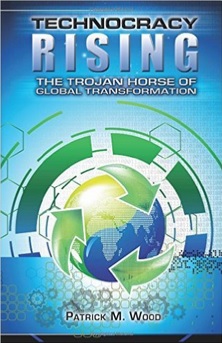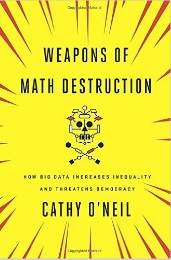The recent decision by District Court Judge T.S. Ellis concerning the contrived charges against Paul Manafort represents more than just an official acknowledgement of the corruption within the U.S. Department of Justice, it actually opened up a fissure that delineates the two ideological camps struggling for supremacy. The fate of the nation hangs in the balance.
On one side is the Socialist International with the concept of regionalism, Communitarian law and governance by and through an appointed commission and on the other America as a sovereign nation-state operating under a Constitution signed in 1787 under American law with a government accountable to the people. Robert Mueller is the aggressor on the side of the Socialist International and Donald Trump is on the side of a sovereign America – we hope.
Collective Security
The North Atlantic Treaty Organization (NATO) was established on April 4, 1949.
The Preamble in the Charter of NATO ties NATO to the United Nations.
The Parties to this Treaty reaffirm their faith in the purposes and principles of the Charter of the United Nations and their desire to live in peace with all peoples and all governments. They are determined to safeguard the freedom, common heritage and civilisation of their peoples, founded on the principles of democracy, individual liberty and the rule of law. They seek to promote stability and well-being in the North Atlantic area. They are resolved to unite their efforts for collective defence and for the preservation of peace and security. They therefore agree to this North Atlantic Treaty…
The idea of collective security and the creation of an unelected ruling European Commission comprised of representatives from each of the governments participating was to prevent war by resolving disputes diplomatically. Europe was the problem so NATO’s business was on the European continent – until September 11, 2001. On September 12, 2001, NATO invoked Article 5 of the Atlantic Treaty:
Article 5
The Parties agree that an armed attack against one or more of them in Europe or North America shall be considered an attack against them all and consequently they agree that, if such an armed attack occurs, each of them, in exercise of the right of individual or collective self-defence recognised by Article 51 of the Charter of the United Nations, will assist the Party or Parties so attacked by taking forthwith, individually and in concert with the other Parties, such action as it deems necessary, including the use of armed force, to restore and maintain the security of the North Atlantic area.
Any such armed attack and all measures taken as a result thereof shall immediately be reported to the Security Council. Such measures shall be terminated when the Security Council has taken the measures necessary to restore and maintain international peace and security .
Alignment With the Socialist International
On April 25, 1999, the Democratic Leadership Council (DLC) held an event at the National Press Club to talk about the Third Way and DLC politics.
What is Third Way?
It’s difficult to find a coherent definition of the Third Way – if one even exists. Jacobin Magazine has about the best description of Third Way that this writer could find:Appearing in an era when the spirits of socialism and communism still haunted the Left, Giddens’s call for a “renewal of social democracy” was meant to close the book on the past and begin a new chapter in the history of social progress. Everything was new — the new economy, New Labour, New Democrats, the New Middle.
In reality, it was all a rather post-hoc affair. The electoral left had been adapting itself to the neoliberal world of free markets and privatization for years already, but a unified, transnational ideological narrative for the reorientation had been missing.
Giddens said his task was to provide the British Labour Party and other European social democrats with “theoretical flesh” to cover the skeleton of their policymaking. Though his book later became a central reference point for scholars of New Labour, what it really signaled was Third Way’s achievement of buzzword status.
The Guardian had an article that included a number of different explanations – none of them entirely satisfactory. They did however, hit upon the reason for the need of a new philosophy to cover the skeleton…
Giddens in his analysis begins by pointing to a changing world and suggests that the Third Way is a response to that change – not merely electoral opportunism then but a rational response to a new political social and economic environment.
At the heart of these developments lie globalisation – such is the nature of world trade and the rapid movement of capital that modern governments are no longer in control of their national destinies – electronic money flies around the world and is 60 times the value of goods.
The capacity of government to influence events is thus diminished…
In an article about the Third Way International posted on the New Democrats Online website, it was described thusly:
…The industrial order of the 20th century is rapidly yielding to the networked “New Economy” of the 21st century. Our political and governing systems, however, have lagged behind the rest of society in adapting to these seismic shifts. They remain stuck in the leftright debates and the topdown bureaucracies of the industrial past.
The Democratic Leadership Council, and its affiliated think tank the Progressive Policy Institute, have been catalysts for modernizing politics and government…The core principles and ideas of this “Third Way” movement are set forth in The New Progressive Declaration: A Political Philosophy for the Information Age.
Tech Fascism
This writer’s definition of Third Way is Tech Fascism. It’s a political bargain between politicians (left and right), tech industry moguls (money) and the barbarians of the underclass who are used to crush the cultural and social norms of the middle class as the tech industry destroys the economy the middle class depended on. (Note: the reason for using the term barbarians is because the perception of most Americans regarding middle class status referred more to adherence to social and cultural norms than it did to income.)
The purpose of going through all of that description of Third Way is because it is necessary to understand the significance of NATO’s adoption of Third Way. On May 1, 1999, the Democratic Leadership Council had posted on their website, an article about the DLC meeting on April 25, 1999 described and linked above and NATO’s New Role with respect to the Third Way.
Our cover story in this issue of The New Democrat is devoted to Europe’s growing embrace of the Third Way, the American-bred governing philosophy for a global Information Age. In late April, the leaders of Britain, Germany, Holland, and Italy joined President Clinton and the Democratic Leadership Council in Washington for a extraordinary public conversation about the Third Way movement’s meaning and direction on both sides of the Atlantic.
The four European leaders who attended the DLC forum were in Washington on other business critical to the shaping of a secure and prosperous 21st century. They and the other national leaders here for events commemorating the 50th anniversary of NATO had little opportunity to celebrate the most successful military alliance in modern history or its expansion to include former Warsaw Pact nations. Instead, NATO’s 19 heads of government were forced to spend their time together shaping the alliance’s post-Cold War mission as its forces engaged in a hot war in the former Yugoslavia.
The decisions taken at the NATO summit have implications that go far beyond the alliance’s intervention in Kosovo. All NATO members, large and small, explicitly accepted a new role for the alliance in using force to uphold civilized norms of behavior in Europe. Whatever the outcome in Kosovo, the United States and its European allies have modernized NATO’s purpose to meet a new common threat.
NATO – 50th Anniversary
Leading up to the 50th Anniversary of NATO, there was discussion in this country about whether or not to continue participation in NATO. NATO was created in the wake of World War II to protect western Europe during the rebuilding and the process of building the European Union. By 1999, those missions were finished. Germany was reunified and the Soviet Union no longer existed. The only problem in Europe was in the Balkins. Slobodan Milosevic was the leader of Serbia. The history is too complex to summarize. Suffice to say that Milosevic was accused of war crimes and NATO was waging a bombing campaign against them.
Madeleine Albright was the Secretary of State at the time of the NATO bombing of the Balkins. On April 6, 1999, she spoke at Brookings Institute on the future of NATO, the bombing of Serbian forces, refugees, and how there needed to be peace for there to be a “free and open” Europe. The problem is that the Balkans are the gateway to Europe from the Middle East.
Keep in mind that on September 11, 2001, Continuity of Government was initiated and on September 12, 2001, NATO invoked Article 5 of the North Atlantic Treaty.
To be continued –
Related: The Grand Chessboard of the Trilateralists
Shanghai’d by the P4P
P.S. Nearly forgot to mention that Slobodan Milosevic died in prison but after his death it was found that he was not guilty of the war crimes that he was charged with. It was discovered that the U.S. State Department hired a mercenary group named MPRI and MPRI was owned by L3 Communications. MPRI was hired to give military training to the Croats who were fighting with Milosevic. It may be a coincidence but L3 Communications was just across the road from the Branch Davidian estate in Waco. Just saying…

